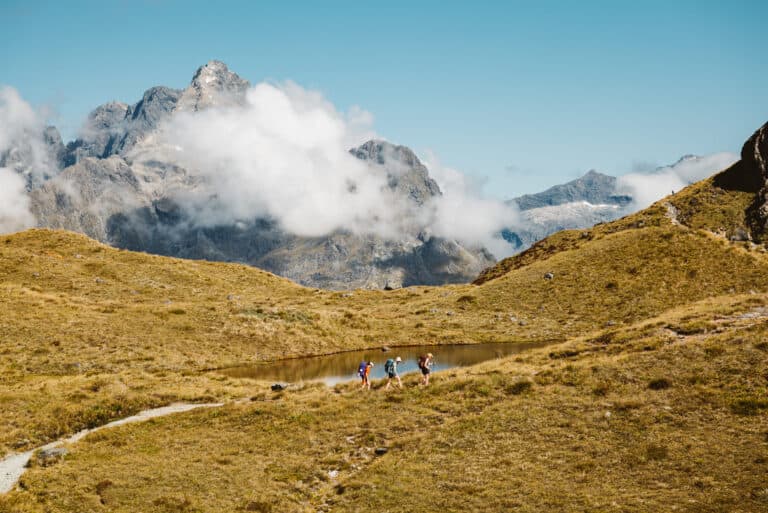A Complete Guide To Beginner Backpacking
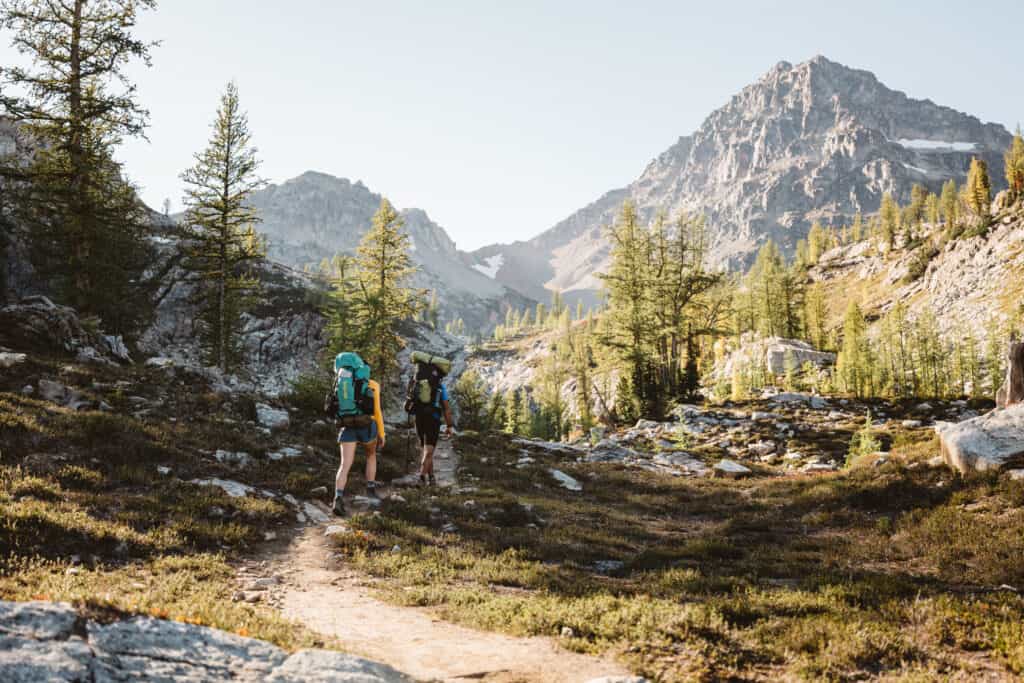
The world of backpacking can feel intimidating for any beginner. After even just a few minutes of research, the beginner backpacking gear list and technical knowledge can feel overwhelming. Where do you even start?!
To help do some of the heavy lifting for you, we’ve created this complete guide to beginner backpacking: all of the gear, clothes, and tips you need to get out on your first backpacking trip.
Why is backpacking gear important?
Before we get into the what in terms of beginner backpacking essentials, it’s important we also talk about the why. If you’re newer to the world of backpacking and backcountry camping, you’re probably wondering what the difference is between car camping gear and backpacking gear.
The quick answer: they’re actually quite different because they serve different purposes!
Backpacking gear is specifically designed to be lightweight and more easily carried in your pack for miles (or days) on the trail. Things like tents, sleeping bags and sleeping pads, and even cooking gear and food are lighter, smaller, and easier to pack compared to car camping gear, and are often more high-tech to keep you warmer, drier, and safer out in the backcountry.
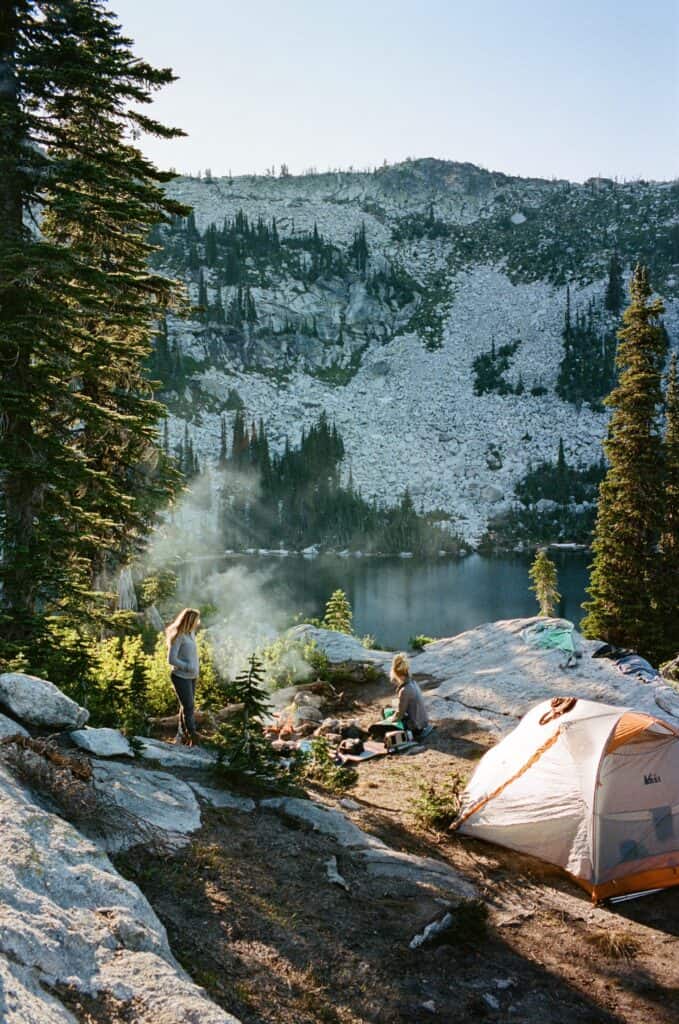
Now that you know the WHY, let’s get into the WHAT. As a beginner backpacker, it can feel overwhelming to even know where to start when it comes to backpacking gear, tips, and how to get out there.
Gear:
1. A Backpack
A well-fitting backpack is one of the most important pieces of gear when it comes to backpacking essentials. It’s important the size of the backpack is large enough to fit all of your gear, and it sized correctly to your body.
If you’re going to splurge on anything on this list, a backpack should be one of those items. REI Co-op has gear experts who are ready to help you find the best pack for your trip, your backpacking goals, and they will help you size it to your body so you aren’t putting extra weight where you don’t need to.
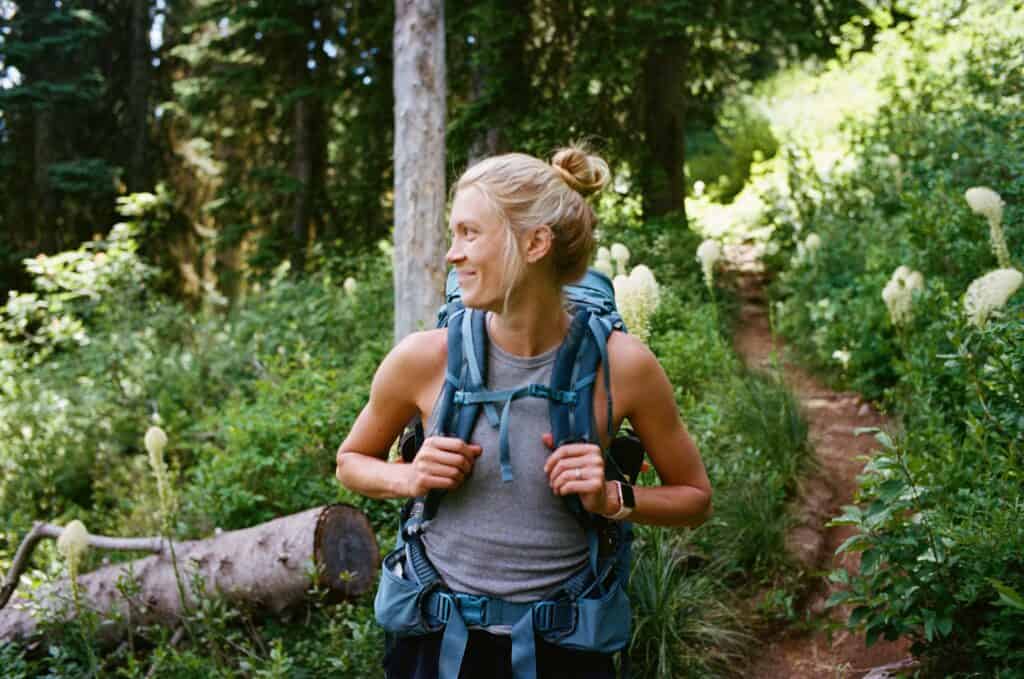
2. A Backpacking Tent
Another piece of backpacking gear that we recommend investing in sooner rather than later is a tent specifically designed for backpacking. Traditional car camping tents are heavy and bulky and difficult to pack and carry into the backcountry. We recommend investing in a lightweight tent that’s rated for three seasons (spring, summer, fall)
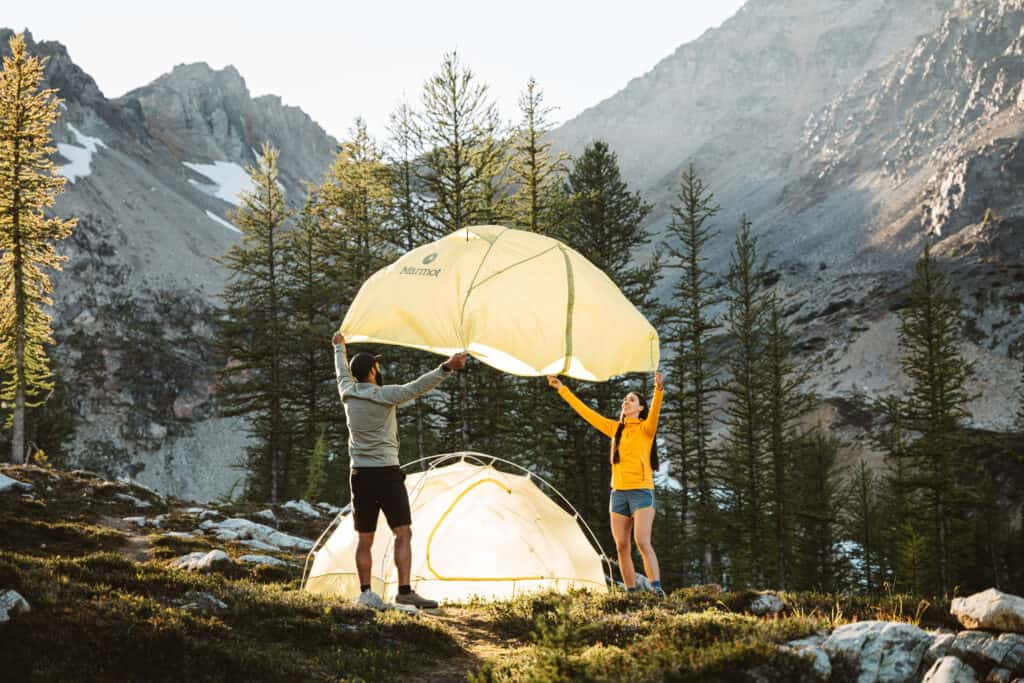
Pro tip: if you are going to be hiking and sharing your tent with another person, divide the weight of the tent! Have one of you carry the tent and rainfly, and the other carry the tent poles and stakes to help keep the weight evenly distributed.
3. Sleeping Bag and Sleeping Pad
Sleeping bags can be a bit tricky, and largely depends on the environments and seasons you plan to use it. If you’re just starting out, we recommend a synthetic sleeping bag that’s rated around 35-50 degrees. That means, that bag can comfortably keep you warm at 35 degrees (and will still keep you warm even if the temps drop a little lower than that).
A synthetic bag is a great place to start because they are lightweight and still pack down small, but are cheaper than down-filled sleeping bags.
You might want to consider a down-filled sleeping bag if you’re planning to be backpacking at higher elevations or in shoulder seasons where the temps might get a bit colder as down bags do keep you a little warmer and pack down a bit smaller than their synthetic competitors.
Looking for a full guide on how to choose a sleeping bag? Check out this guide I created for The Mandagies.
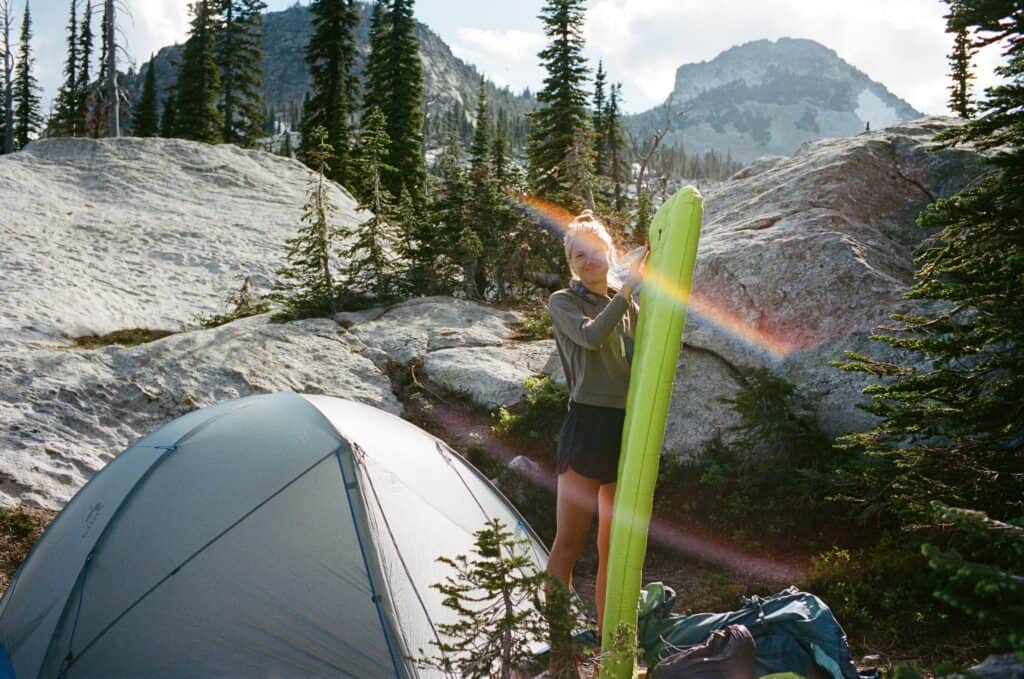
And for a sleeping pad, look for something that is insulated as this will help keep you and your sleeping bag warmer and more insulated throughout the night. Check out this guide on REI.com for more details on choosing a sleeping pad.
4. Headlamp with extra batteries
Be sure to bring a headlamp for getting around camp at night, or in case you find yourself hiking after dark. And be sure to always bring extra batteries in case you or someone you’re with needs them.
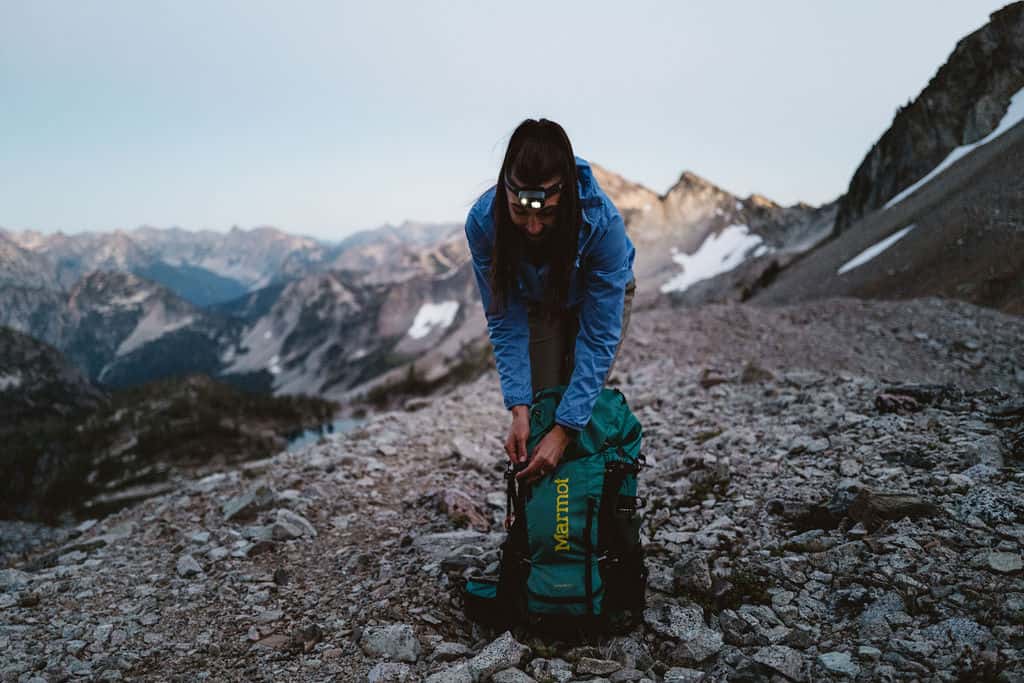
5. Good hiking boots
Hiking boots are arguably one of the most important backpacking essentials and could make or break your backcountry experience. Be sure you have hiking boots that fit well, are supportive, and are well broken in (but not falling apart). If you need help finding the best boots for your feet, head to your local REI to chat with the experts!
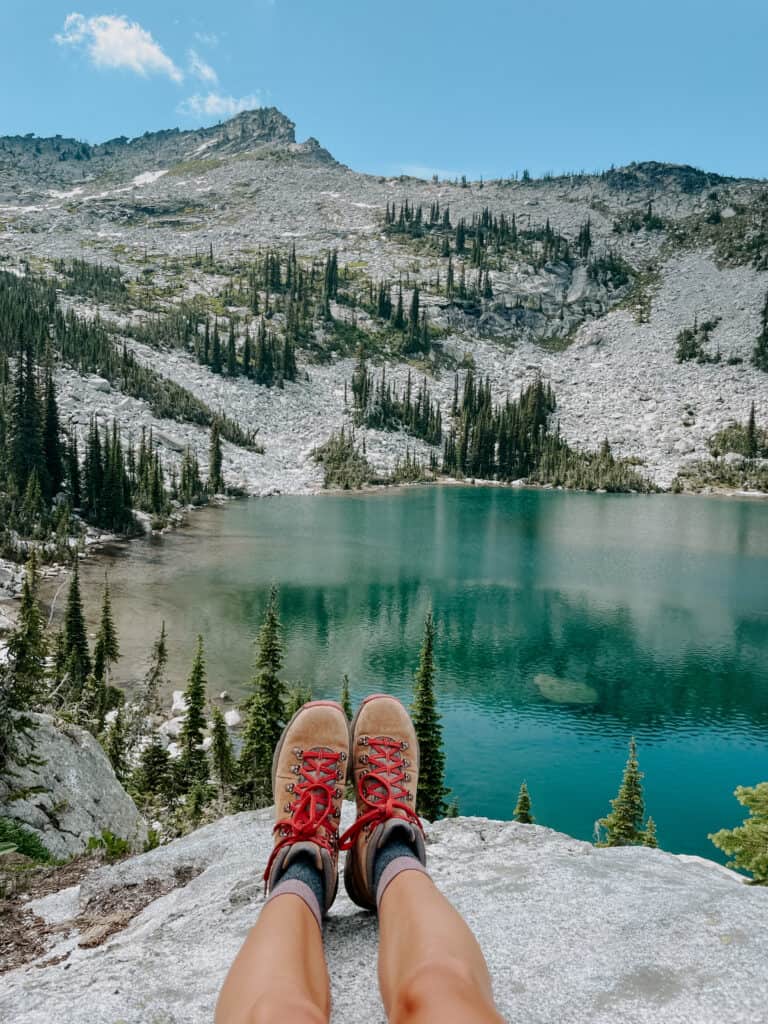
6. A change of shoes for when you get to camp
There is truly no better feeling at the end of a long day of hiking than taking off your hiking boots and slipping on some comfy camp shoes.
We swear by the Teva ReEMBER for wearing around camp. They keep our feet warm but are easy to carry in our packs without adding a lot of extra weight. If you’re looking for more of a sandal, the Teva Hurricane XLT2 is our go-to. We love that we can strap the shoes to the outside of our packs for easy carry and quick access the second we arrive at camp.
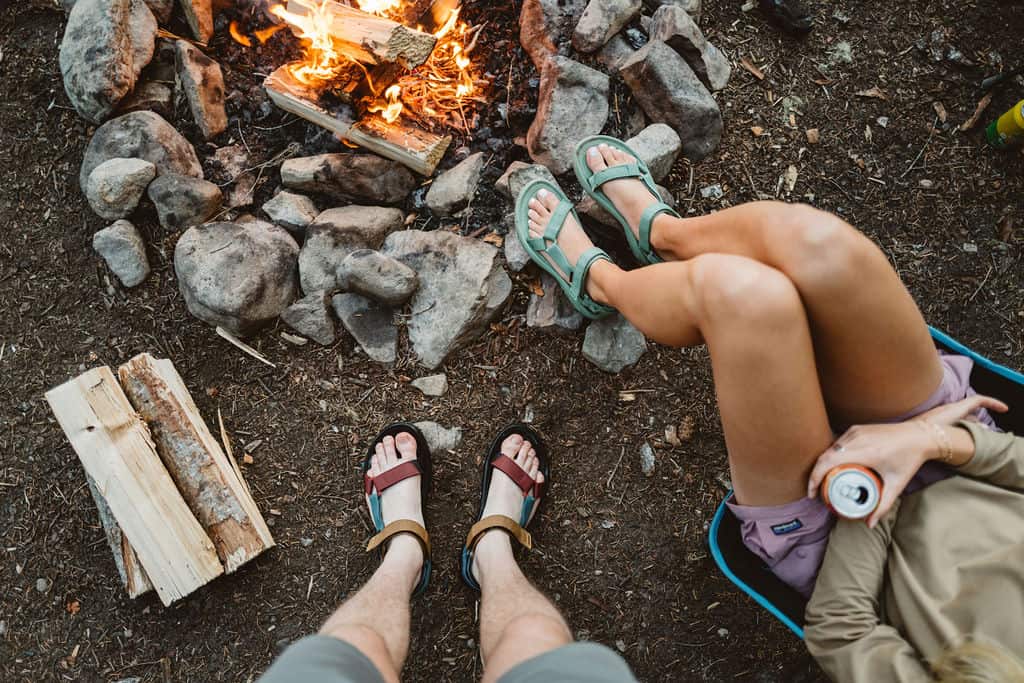
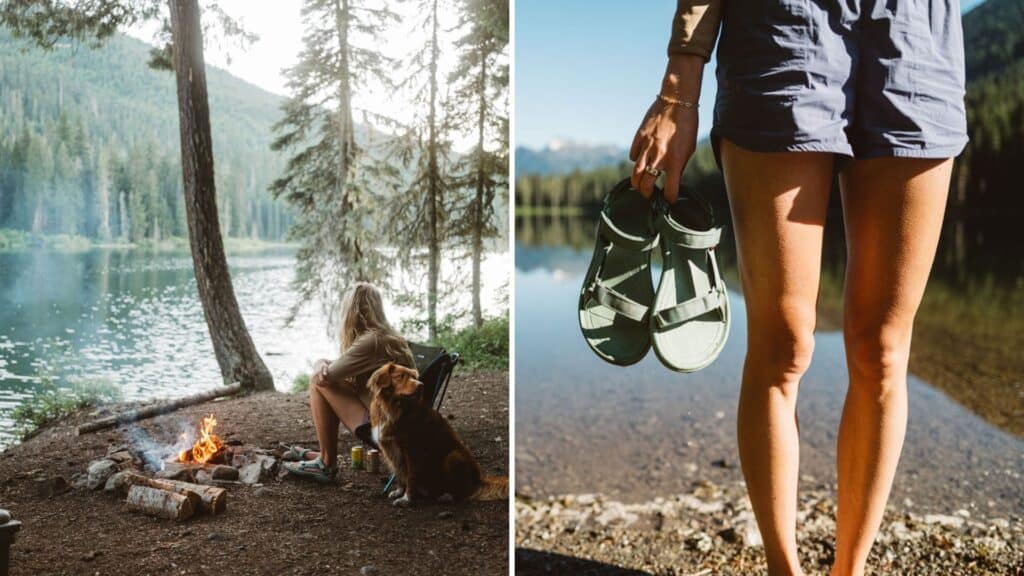
Backcountry Camp Kitchen Gear
1. A stove and fuel
Our go-to is a JetBoil because it packs small, but boils water in a matter of minutes. However, you can find smaller camp stove options from REI or even Amazon.
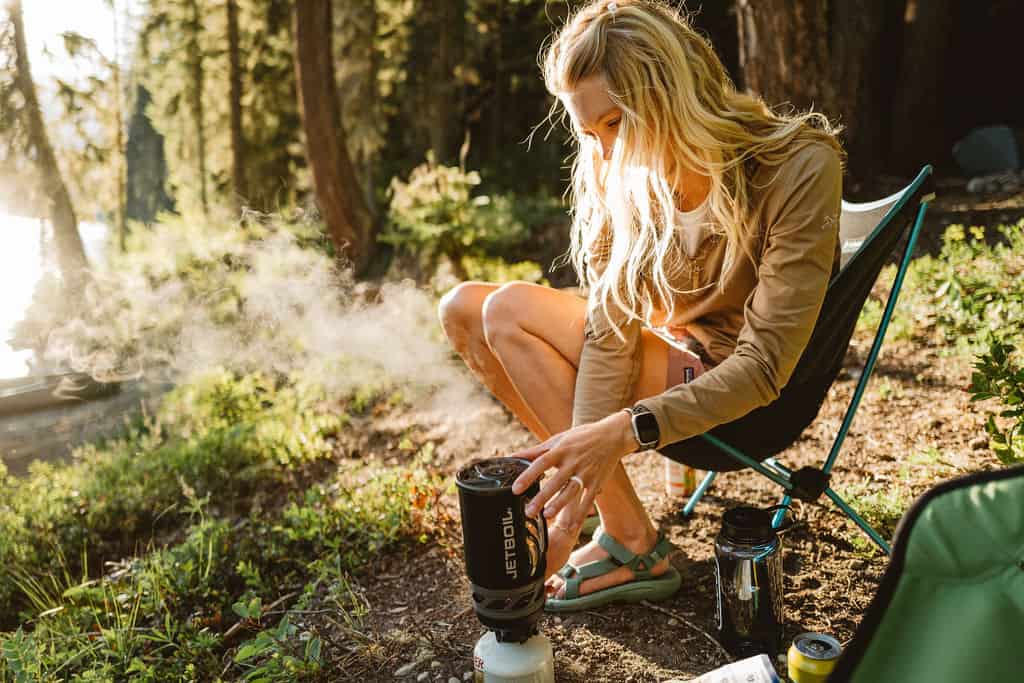
2. Water bottle and electrolytes
Another thing you’ll want to make sure you have lots of is water. We recommend bringing 1-2 Nalgene water bottles and a water filter so you can refill your water when you run out. We also recommend bringing electrolyte tablets, like Nuun, for added hydration, especially if you’re hiking in hot weather.
3. Water Filter
A water filter will be important so 1) you don’t run out of water while you’re out on the trail hiking in hot weather. And 2) so you don’t have to carry all of the water you’ll need on your trip with you. Water is heavy, so one of the easiest ways to save on weight is to pack a couple of full Nalgene bottles, and then you can use your filter to fill them whenever you need more water (just be sure you’re filtering water from a clean source of flowing water).
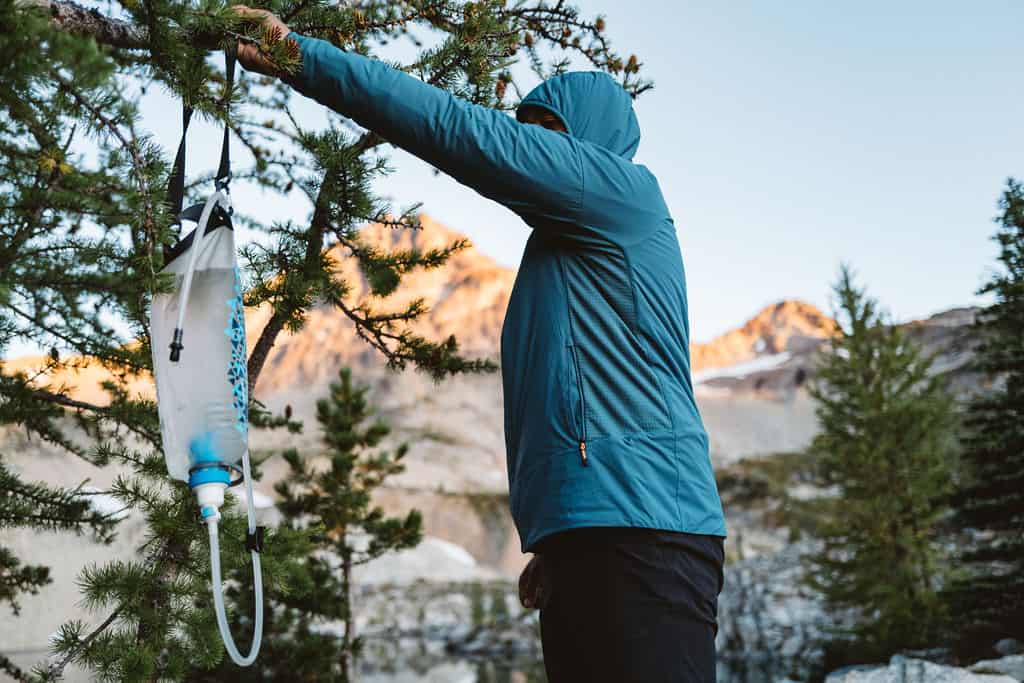
4. Backpacking meals and snacks
In the backcountry, most of your meals will be freeze dried, but we also recommend bringing lots of snacks and smaller food items like oatmeal, protein bars, trail mix, dried fruit, and your favorite candy that you can supplement for breakfast or lunch, or treat yourself with a tasty trail snack.
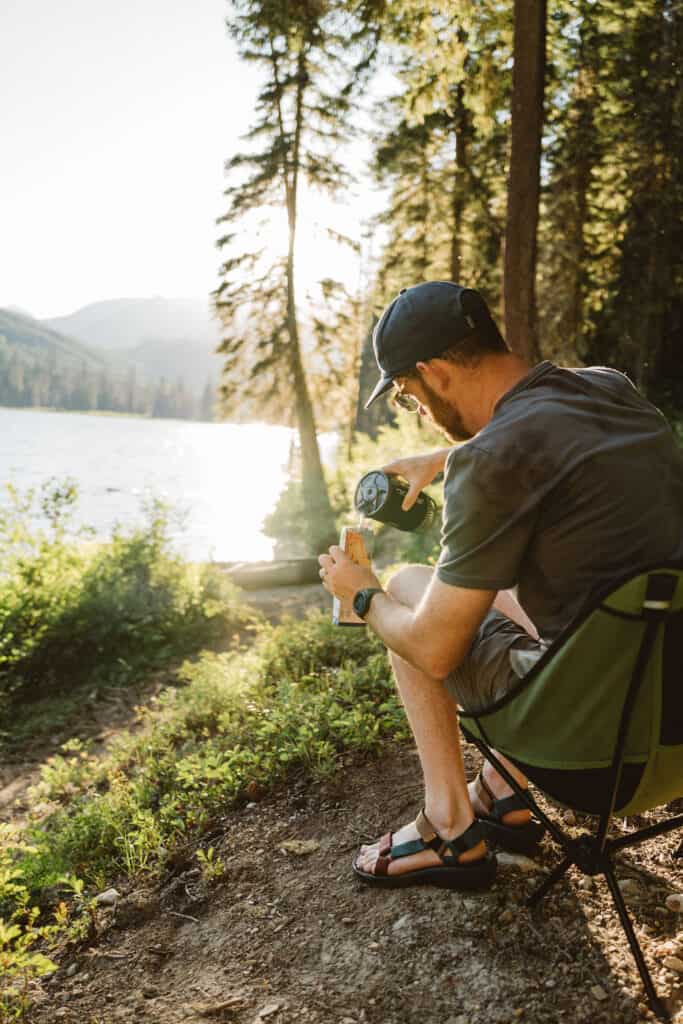
5. Utensils, camp mug, instant coffee
Don’t forget to bring a spoon or fork, or this spork that we are obsessed with, as well as a camp mug for oatmeal or your morning coffee.
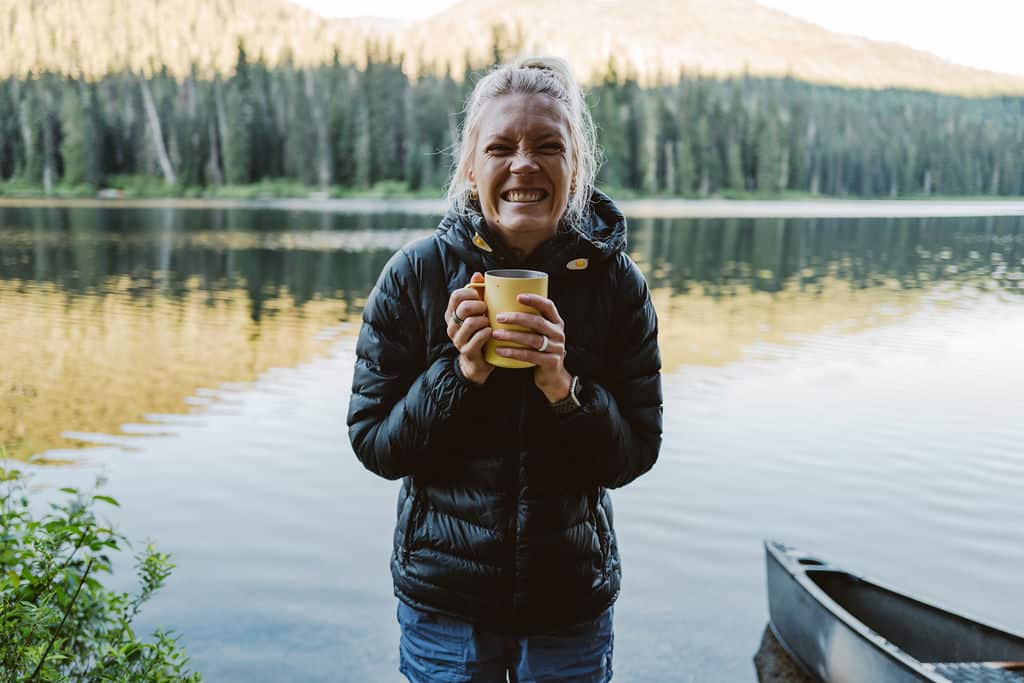
Safety and Tools
- First Aid Kit
- Bear Spray and other protection from wildlife, like a bear canister
- Map and compass, or downloaded trail map on your phone
- Multi-tool and paracord
- Personal toiletries like toothpaste and a toothbrush, sunscreen, bug spray, hand sanitizer, etc.
- A portable charger
- A lighter or matches
- A trowel, TP, and a ziplock to pack out and used toilet paper and/or menstrual products
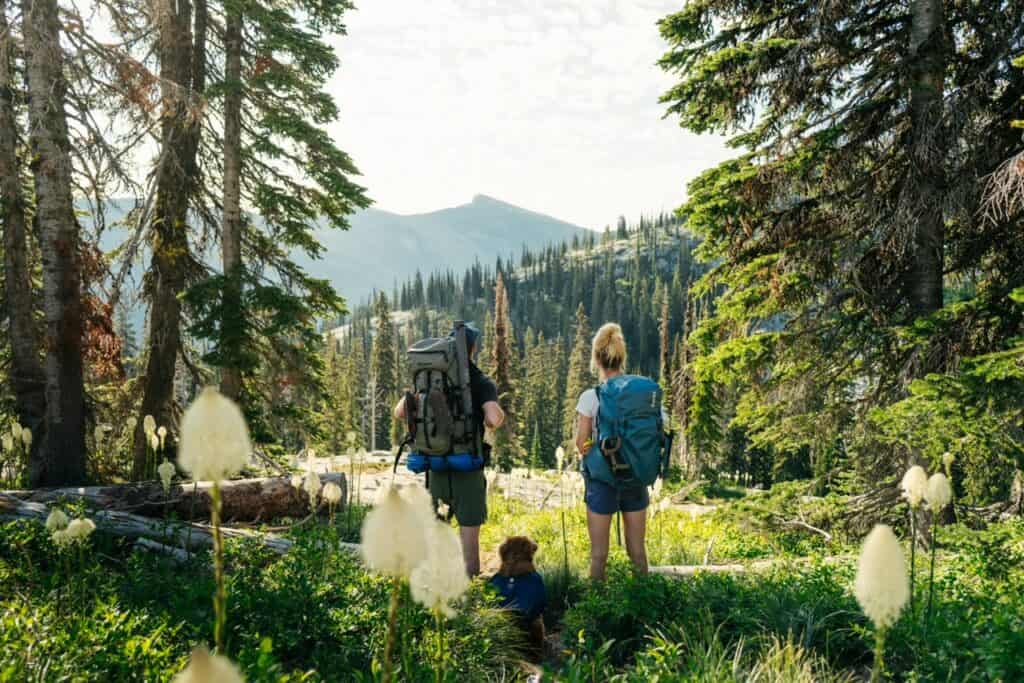
Optional (but super useful) gear:
- Trekking Poles
- GPS satellite communicator like a Garmin InReach Mini
- Games, a journal, and/or a book
- A camera
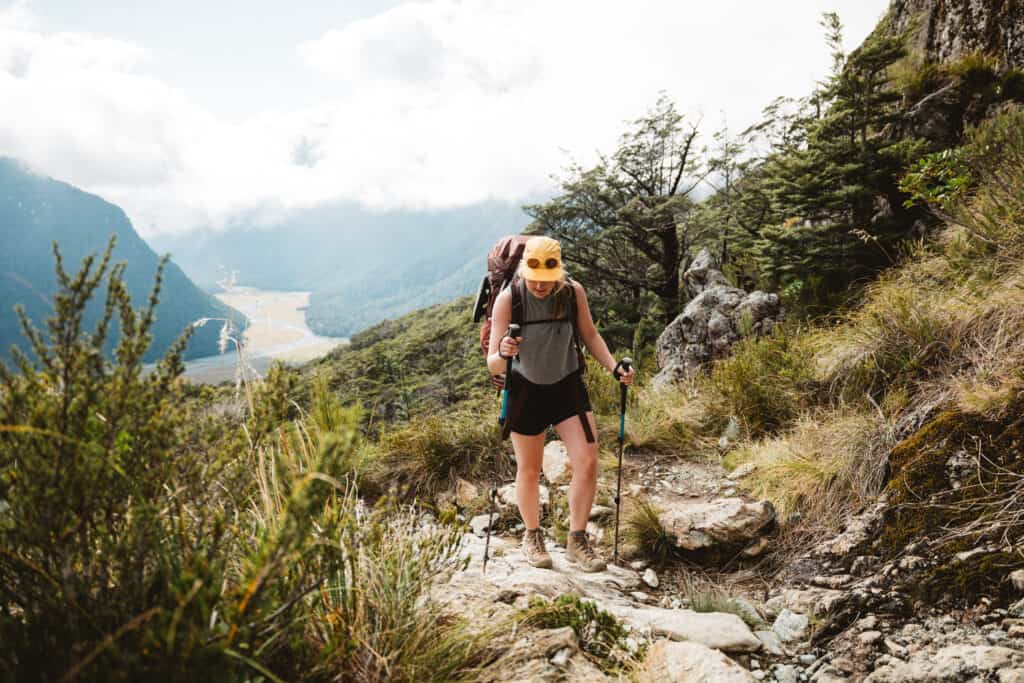
Clothes to pack for your backpacking trip
- Moisture-wicking tops (short sleeve for during the day, long sleeve for if it cools down at night)
- Quick-drying pants and/or shorts
- Hiking socks
- A set of clothes dedicated just for sleeping (top, bottom, and socks)
- A change of underwear
- A packable puffy jacket in case it gets cold
- A swimsuit (optional, but nice to have if you will be near water)
- A change of shoes to give your feet a break from you hiking boots, like these Teva ReEMBER or Teva Hurricane XLT2 sandals.
Psst – looking for additional tips on what to wear when hiking and backpacking in the summer? Check out these tips for hiking in hot weather.
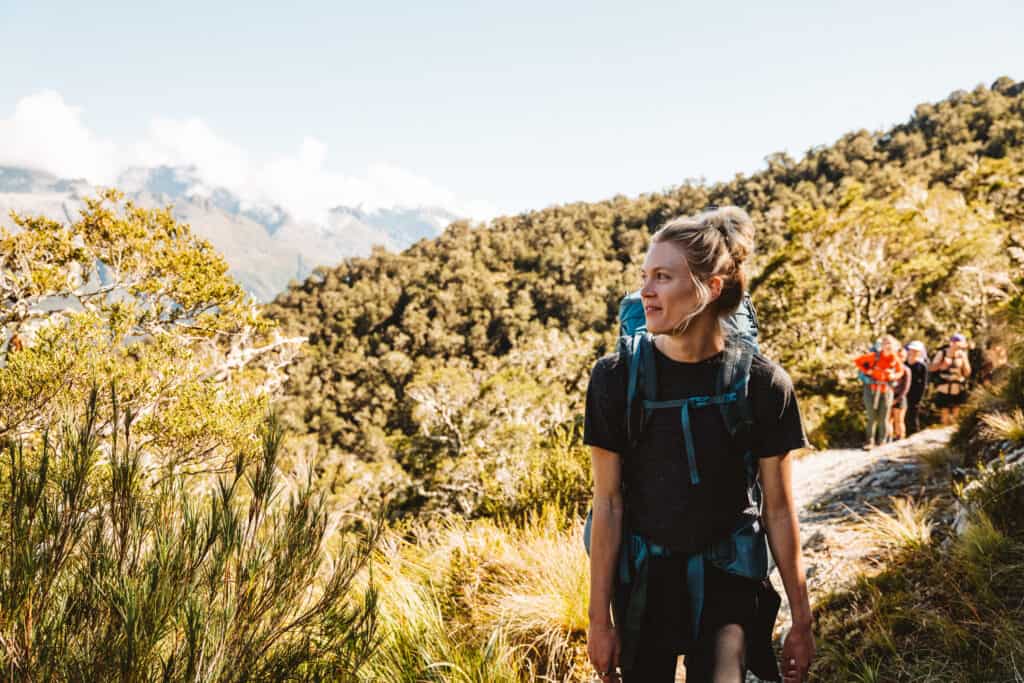
Our top 4 beginner backpacking tips:
1. Start Small
If you’re just starting out (or even if you’re not!), don’t feel like you need to crush dozens of miles or go out for multiple days to have an epic backpacking trip. You can enjoy the FULL backpacking experience closer to home, too! Choose a trail that’s a little shorter (2-6mi) and not hours away from home. That way, you still get the experience of hiking all of your gear into the backcountry, but you’ll be closer to your car and your home should you need to bail for any reason.
2. Head out with experienced backpackers
If you can, try to plan your first few trips with friends or family who have more experience than you. They will likely have gear that you can borrow (or share) and they will have a better understanding of what to expect while you’re out there, so they’ll be prepared for anything that might pop up.
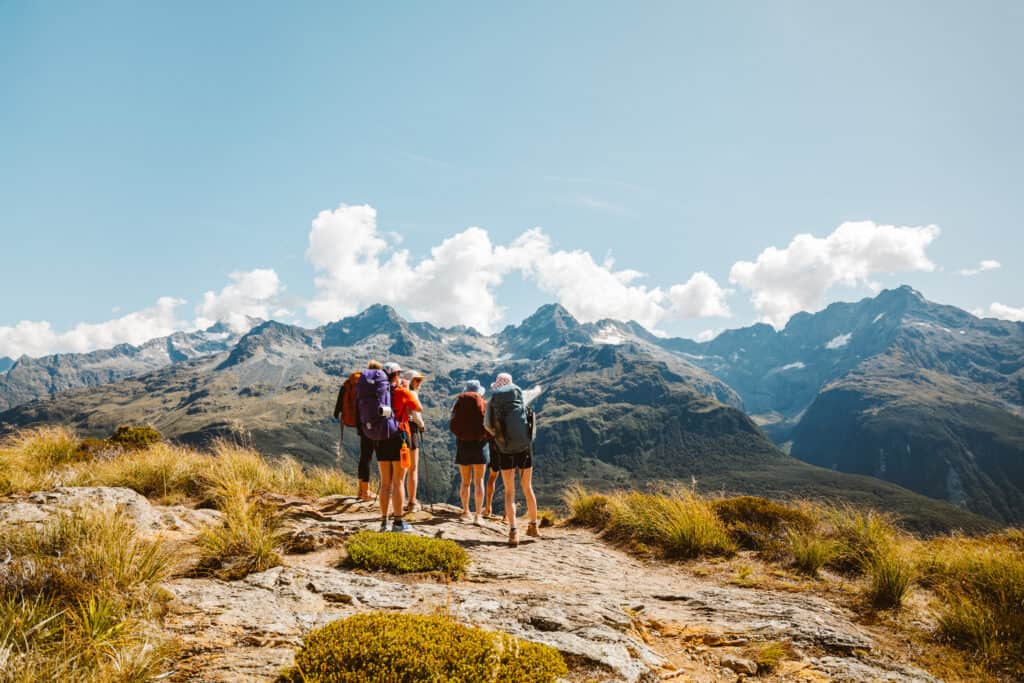
3. Use what you have!
It can feel overwhelming, and honestly defeating, to think about having to buy a whole new collection of gear just for backpacking. If you’re just getting started with backpacking, use what you have! Sure your backpack might not be the perfect fit or your sleeping bag might be a little bulky, but that’s okay! Especially if you’re heading out on an overnight trip that’s only a few miles, a little extra weight won’t be a dealbreaker. As a beginner backpacker, you don’t need to go and splurge on the latest and greatest gear. Which brings us to our next tip…
4. Don’t go out and buy all this gear right away
Backpacking gear is expensive! As a beginner backpacker, don’t feel like you need to go out and buy all the best, most expensive and most lightweight gear on the market right away. Figure out if it’s even an activity you enjoy, first! Then, ask around. See if friends have gear they’re willing to loan or sell to you. Head to your local REI to rent all the gear you can. You can also find great deals on slightly used backpacking gear at REI in their Re/Supply section or at your local gear trade-in store, or online at places like Facebook Marketplace, Craigslist, or Steep & Cheap.
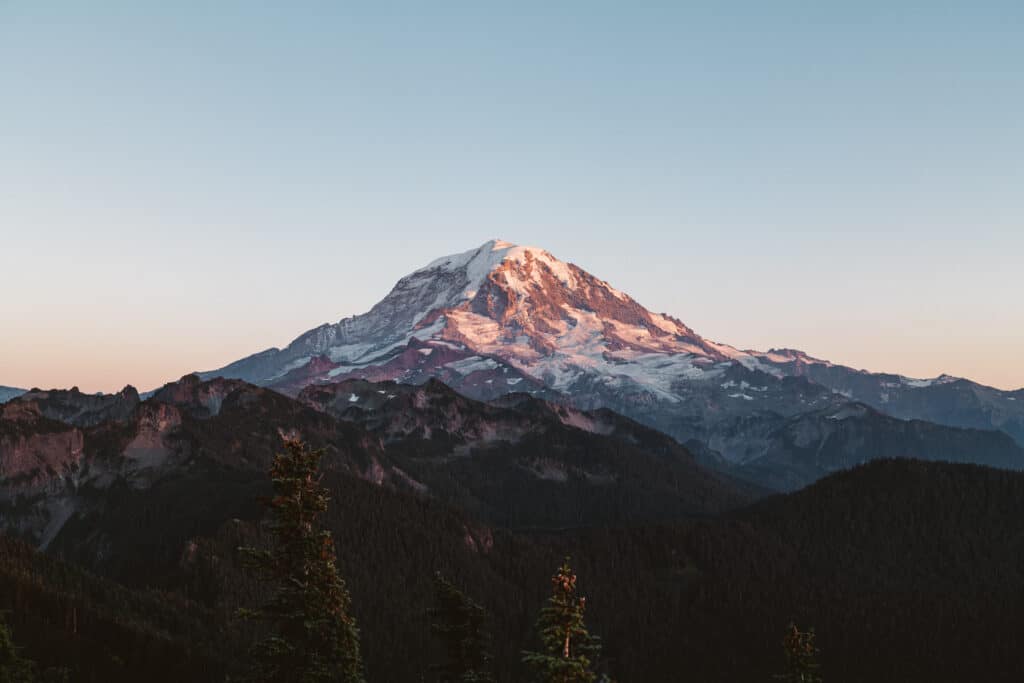
Beginner backpacking gear and figuring out how and where to start getting out there can quickly feel overwhelming and confusing. But hopefully with our gear list and beginner backpacking tips, you feel more equipped and inspired to get out there!

